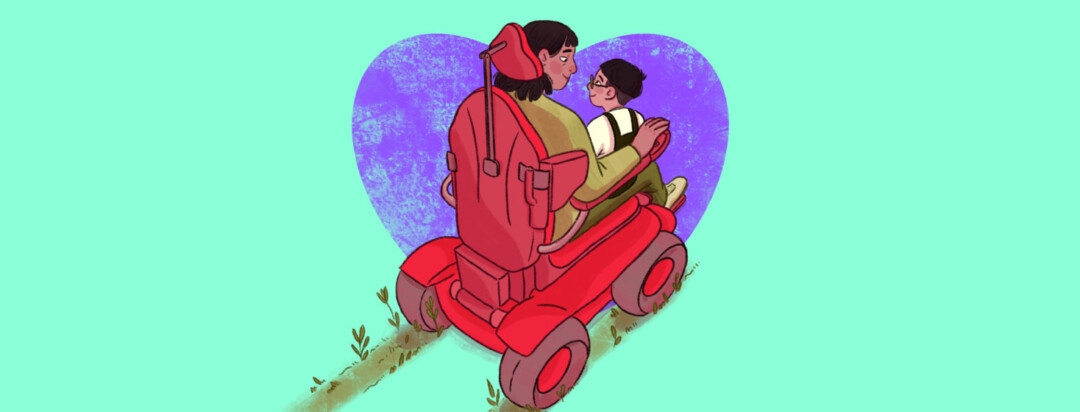Parenting with NMOSD
The hardest situation to deal with is a chronic disease like neuromyelitis optica spectrum disorder (NMOSD) that continues to debilitate you, to the point of not caring who is watching. Including your children.
The disability that I have acquired from NMOSD has caused a great deal of physical changes to my body. I can no longer hide my struggles or emotions with this awful autoimmune disease.
Sharing emotions with my children
Before my NMOSD diagnosis, when my children were physically attending school, I used to take my children's school hours as my time to get myself together.
I would meditate, exercise, cook, shop, and get my mind right. But when the pandemic came along, I had to sit down and figure out how to time manage myself so that I could be the best mother possible. All while taking care of me first, then my children.
On my worst days I used to be able to break down and cry, hiding it from my children so they wouldn't see me be "weak". Today I no longer hide my emotions. Now they sit with me, and watch me cry, and comfort me. This way they can see the emotions that comes with the changes from NMOSD.
It creates a space for an honest conversation, to the best of my ability and their capacity of understanding at young ages.
All sides of NMOSD
It is important to me that I show my children the good and bad sides of NMOSD. Children sometimes forget that adults are just as human as them. I believe it’s very important to show my feelings alongside a conversation, to be able to explain to them what is going on.
For example, when my 8-year-old son sees me cry, I can tell he feels compassion towards me, giving me hugs and kisses - which I love and automatically calms me down. My 13-year-old is very understanding and a good listener. He helps me out tremendously with house chores because he knows I can’t.
They do get weirded out when I’m emotional and it's a bit amusing to me. Mom to children is supposed to be invincible, but it’s necessary to be open with them. They need to know that it’s okay to express your feelings in all their stages of life.
Communication
Communication is key in any and every relationship. My children are understanding of my situation and don’t hesitate to help me when I need it. I suffer from severe spasticity, fatigue, and weakness in general, so chores, stairs, and physical activities are very difficult for me. They understand that when Mami (me) is not feeling well, it’s time for some space (which usually means video games for them).
This has been a learning path for both my children and me. I’m forever grateful that the boys have been nothing but understanding to their level of comprehension.
Parenting with a disability
When it comes to parenting, I'm very grateful that I have a very supportive spouse that allows me to parent my way with all my challenges. Parenting is not easy and with a disability, it gets even more difficult. I take every day as an opportunity to work at being a better mom and teach my boys something new.
Parenting with a disability is challenging but not impossible. Everyday is an opportunity to learn something new from my experience with living with NMOSD for my children and me.
Featured Forum
View all responsesCommunity Poll
Have you shared with our community?

Join the conversation